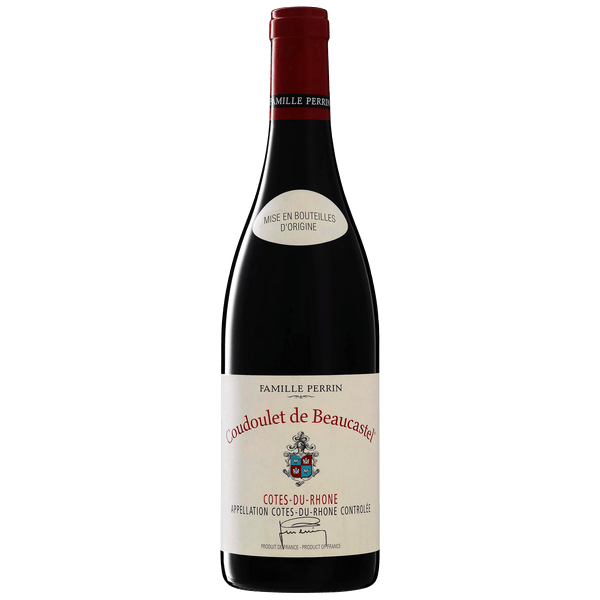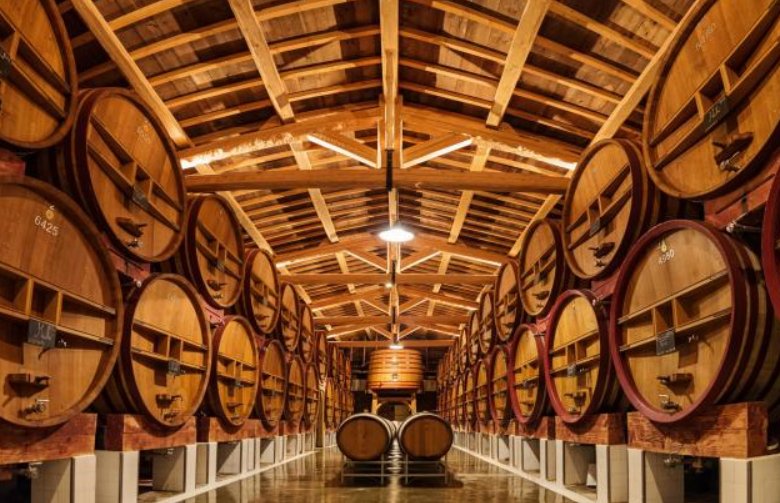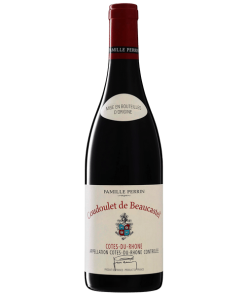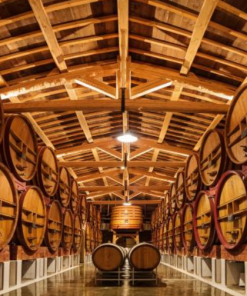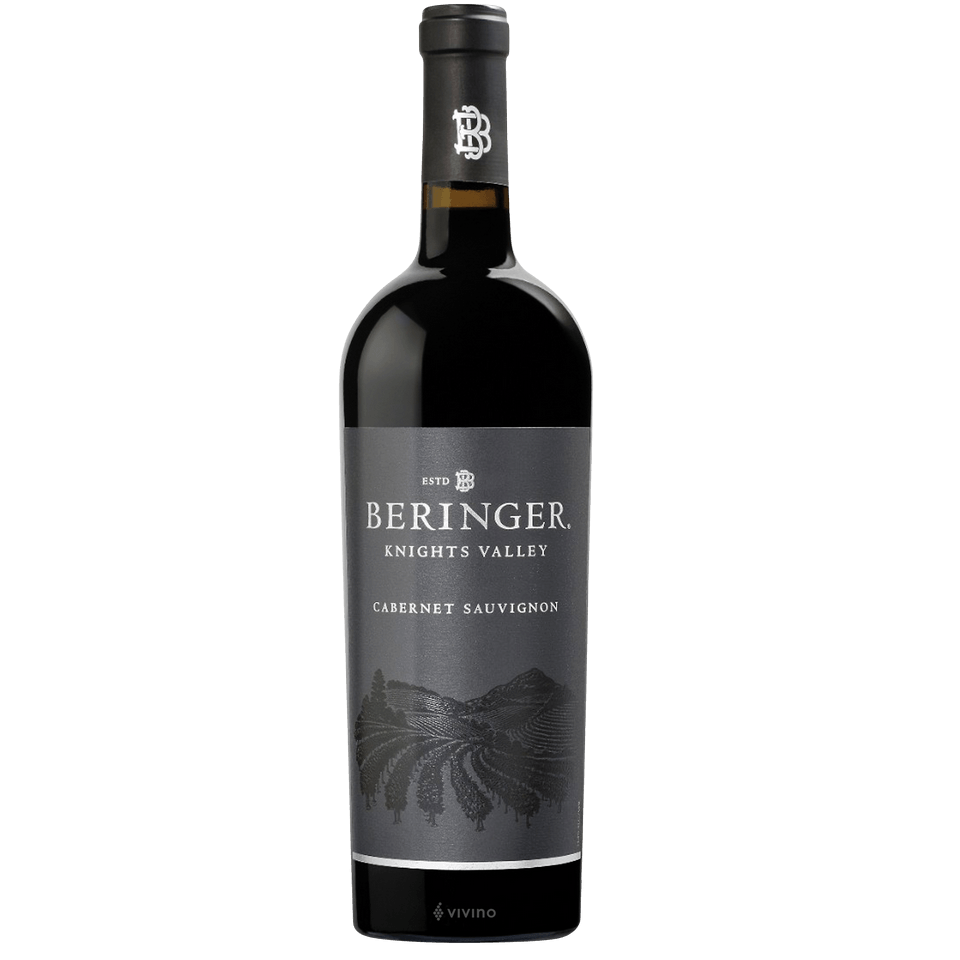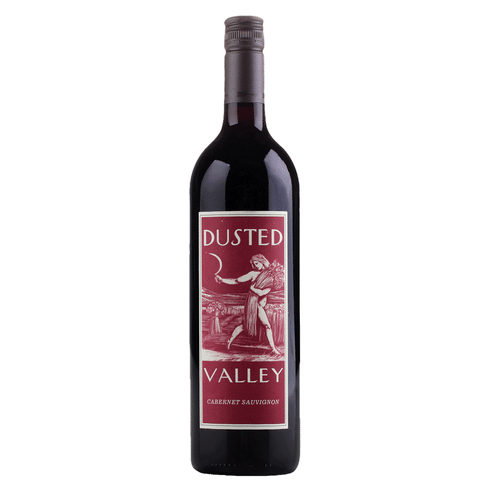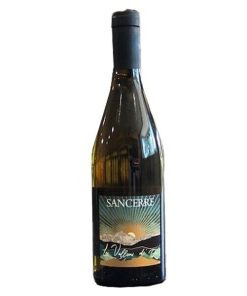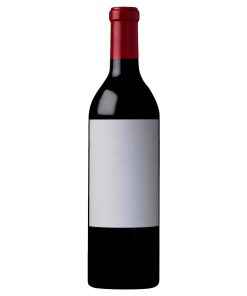2020 Coudoulet De Beaucastel Cotes Du Rhone
2020 Coudoulet De Beaucastel Cotes Du Rhone – Chock full of juicy red and black fruits on the nose, with a subtle note of white pepper. Fleshy, soft and approachable on the palate, this is sumptuous and approachable with no hard edges. A little black fruit and garrigue adds complexity on the back end. Ready to drink and fantastic value for money!
The 2020 Coudoulet de Beaucastel continues this cuvée’s hot streak. It boasts attractive floral overtones, hints of crushed stone and ripe cherry fruit. Full-bodied and impressively silky for such a young wine, it should be drinkable upon release and for at least a decade thereafter.
The 2020 Coudoulet De Beaucastel offers outstanding quality as well as classic notes of darker fruits, roasted herbs, truffly earth, and some meaty, peppery, gamey nuances. With wonderful purity of fruit, ripe tannins, and a balanced, elegant mouthfeel, it will have over a decade of longevity.
The fruit is pure, uncluttered. The palate deals a good hand of soft richness, has a well established center, rounded tannins in the wheel, a plump feel to it overall. The plum fruits are squeezy, ripe, the aftertaste lip smacking.
One of the greatest producers of Chateauneuf du Pape is Chateau Beaucastel. Beaucastel is one of the benchmark Chateauneuf du Pape properties. This wine has proven itself in the tasting rooms, in the ratings it receives, in the cellar with its ability to age and its collectability.
Beaucastel can date its history back to 1549 in Chateauneuf du Pape when Pierre Beaucastel bought land there. The land was transferred to so-in-law Pierre Perrin and the now famous Perrin wine family has been in control ever since, building Beaucastel into what it is today. Beaucastel, like all great wine estates is located on a unique terroir, situated in the far, north east of Chateauneuf du Pape in Coudoulet. The terroir consist of sandstone that is covered by a massive array of multi colored rocks, stone and limestone soil. The rocks reflect the sunlight and hold in the heat from the sun. The heat transfers to the vines at night. The terroir at Beaucastel also affords natural drainage. Another key component to Beaucastel and much of Chateauneuf du Pape is the wind known as the Mistral, which keeps the air clean and the terroir dry. This is a reference point estate! Parkers calls Beaucastel, “One of the great estates of the Rhone Valley.”
One Of The greatest Values Ever.
The French Government decided to build a new highway, the A7. This highway ran through a portion of Chateau Beaucastel’s Chateauneuf du Pape vineyards. The French authorities decided to make the highway the outer border of the Chateauneuf du Pape Appellation and Beaucastel was forced to de-classify a portion of their famous vineyard that was no longer in the appellation. The “de-classed Châteauneuf du Pape is called Coudoulet de Beaucastel and in a great vintage like 2020 makes this wine an absolutely amazing buy. The 2020 Beaucastel Chateauneuf is selling for $90 to $120 a bottle. You can have the 2020 Coudoulet de Beaucastel for $27.99. This truly is a smart buy if I ever saw one!
Château de Beaucastel
The first evidence of Château de Beaucastel as it exists today is in the sixteenth century. In 1909, Pierre Traminer bought the estate and then transferred it to his son-in-law Pierre Perrin, a scientist who further developed Beaucastel. His son, Jacques, continued his father’s efforts until 1978 and today, the torch is carried by Jacques’ sons, Jean-Pierre and François. They are joined by the fifth generation of Perrins—Marc, Pierre, Thomas, Cécile, Charles, Matthieu, and César.
The vineyards of Château de Beaucastel are located on historic land where each of the 13 approved grapes varietals of the Châteauneuf-du-Pape appellation are planted. The art of blending these 13 grapes has been passed down from one generation to the next. Beaucastel is, first of all, a family story, the story of Famille Perrin. Their main strength is being able to blend the talents of each family member to run the wine estate under common values: absolute respect for land and terroir; biodynamic culture as a philosophy of life; and the research of truth, balance, and elegance.
Related products
Liquid Gold, Rivals The Greatest Sauvignon Blanc in the World, We Have Just Received A One Time 25 Cases.
2019 Domaine des Lambrays Morey-Saint-Denis 2019 Domaine des Lambrays Morey-Saint-Denis, Nice red ruby color. The nose is expressive and intense: a lot of fruit such as raspberries, cherries, blackberries and blueberries all mixed together. The palate is juicy, full, and crispy, with a lovely fresh mineral character at the end. Thin-skinned, finicky and temperamental, Pinot [...]
2020 Domaine des Lambrays Clos des Lambrays Grand Cru 2020 Domaine des Lambrays Clos des Lambrays Grand Cru, A fresh red, with black currant and black cherry flavors shaded by floral, iron, earth and spice elements. Fluid and on the elegant side, with a solid underlying framework of tannins. Turns a bit leaner on the [...]
